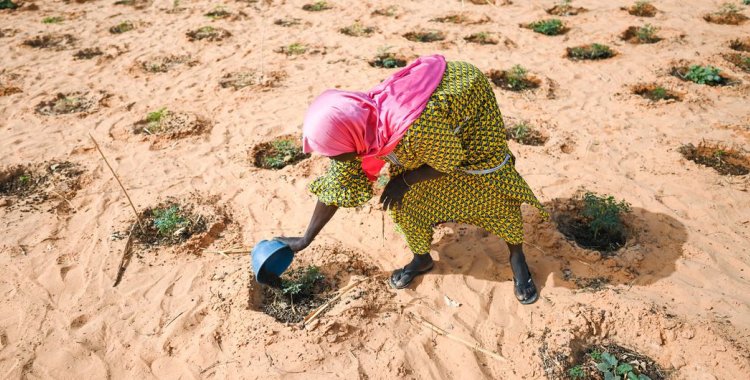The warning is in the report "No Escape: On the Frontlines of Climate, Conflict and Displacement", which is officially launched during the Conference of Nations United Nations on Climate Change 2024 (COP29), which takes place in Baku.
In the document, presented in the Azerbaijani capital by UNHCR High Commissioner Filippo Grandi and refugee and climate activist Grace Dorong, it is highlighted that Southern Africa records complex population flows caused by forced displacement, voluntary migration and circular mobility patterns and climate change "is likely to further complicate this dynamic".
"Key corridors, such as those running from Zimbabwe and Mozambique to South Africa, or from the Democratic Republic of Congo to Zambia, can be the scene of increasing tensions as resources become scarcer and population movements increase", he details.
Two regions highlighted as critical in the report are the Sahel and the Horn of Africa.
The ongoing conflict in Sudan has displaced more than 11 million people, including more than 2 million people housed in neighboring countries, with nearly 700,000 of those people in Chad, according to data from last month.
"Despite being one of the most vulnerable countries in the world to climate change, Chad has kept its doors open to refugees from Sudan and other countries," he highlights.
Furthermore, along with the security risks people face from armed groups along the Sudan-Chad border and limited humanitarian support, the impacts of climate change are exacerbating already difficult living conditions, UNHCR stresses.
Throughout the 60 pages of the report, there is a particular emphasis on Brazil.
The report presents Brazil, along with 64 other refugee-hosting countries, including Cameroon, Chad, Nigeria and South Sudan, as having on its territory more than 40 percent of the people currently living in displacement across the world.
At the local level, most refugee and IDP camps and camps in East Africa, the Horn of Africa, and the Great Lakes region currently face high exposure to compound climate risks.
Also citing Brazil as an example, the report recalls that, since the devastating earthquake that hit Haiti in 2010, Brazil has been granting humanitarian residence to Haitian citizens arriving in the country.
"In 2024, more than 90 thousand Haitian citizens will live in Brazil. The immigration legislation issued by Brazil in 2017 provides for the granting of humanitarian visas and temporary residence for different situations, including 'major calamity, environmental catastrophe'", he highlights .
UNHCR also draws attention to what happened in May this year when devastating rains and floods in the Brazilian state of Rio Grande do Sul caused the deaths of 181 people, affecting 2.3 million people and displacing 580,000 individuals from their homes.
"The floods caused economic losses worth billions of dollars that will take many years to repair," warns the UNHCR, which adds that among those affected are 43,000 vulnerable refugees from Venezuela, Haiti and Cuba, who were in some of the areas most affected by floods in the region.
This is UNHCR's first climate report and "explores the intersection between climate and displacement, gaps in current climate finance, the future of legal protection for affected people, and the need for investment in resilience projects in fragile and conflict-affected contexts".







